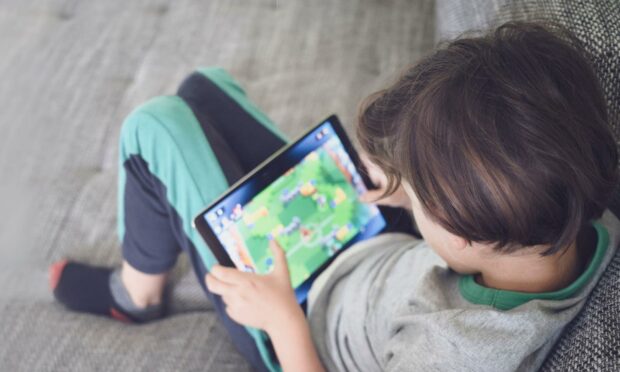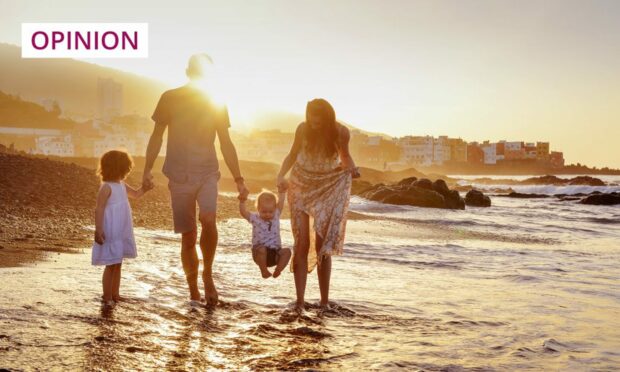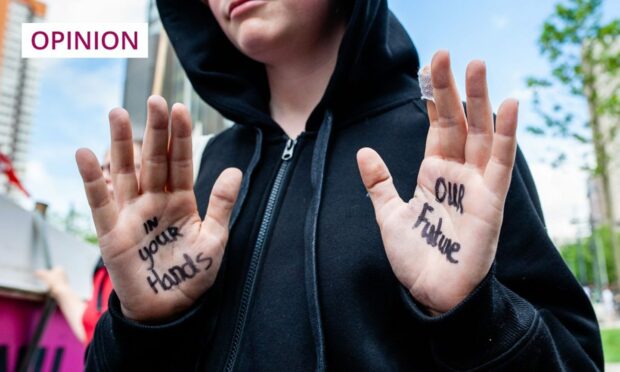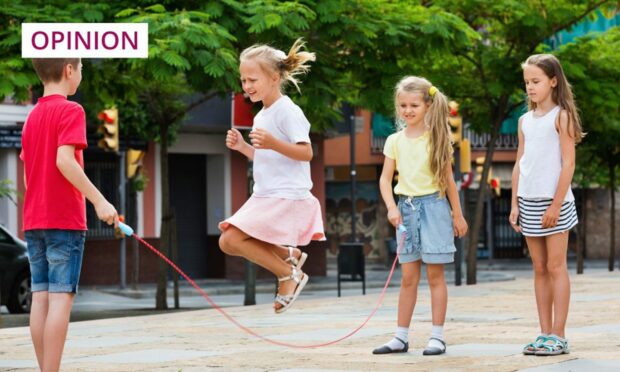I’d like to talk to you about my grandma, my mother’s mum. Netta Thom, or Netta Gordon, as she was before she got married.
I’m telling you her name because some of you may remember her. She was Aberdeen through and through, never letting anyone forget it. I’m also telling you because she was a force to be reckoned with, utterly worthy of a mention.
Well, another mention, I should probably say, as she featured in the Aberdeen newspapers regularly over the years, mostly in a leotard and leggings at keep-fit or tap class.
By the time I knew her, she was already a pensioner, but even then she had bucketfuls of energy, bounding up hills until she was nearly 80, and taking “old folk” – usually younger than herself – out for day-trips.
Gram, as we called her, invariably had lots of stories and loved to regale us with them – the more shocking the better. Once, for example, she hid rocks in a rucksack to test my dad’s mettle on a hike up Bennachie when he was initially on the scene.
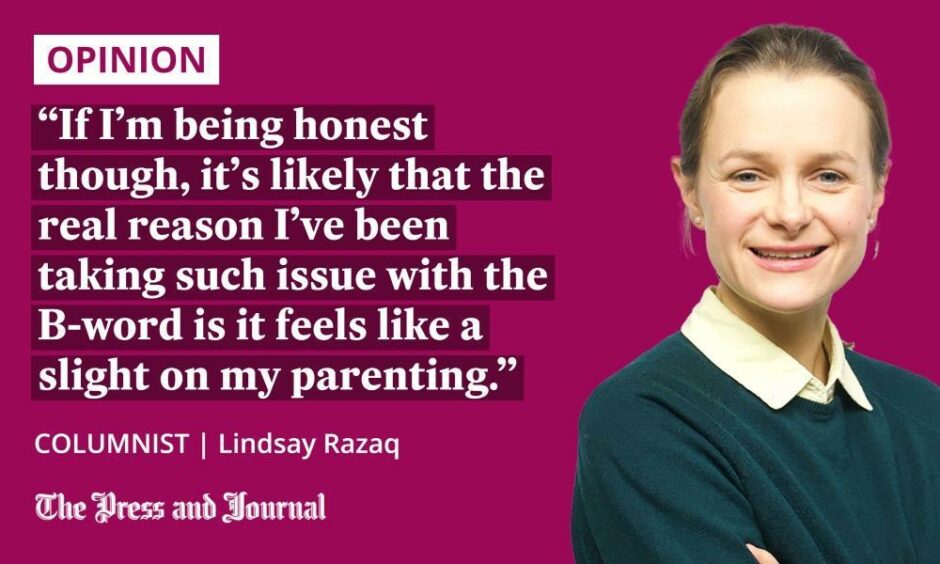
I also enjoyed hearing about her excursions to Aberdeen Beach with her siblings in the summer. They’d arrive at 6am with their lunch of hard-boiled eggs safely packed away and not return home until it was getting dark. That’s a long day in the north-east wind, but they were hardy, independent from an early age – both physically and mentally.
Tackling cries of ‘I’m really bored’
Were they bored? Who knows? Quite possibly. If so, they found a way not to be, however, or simply got on with it.
I ask the question because the “B word” has started to creep into my four-year-old daughter Maya’s vocabulary of late.
“This is sooooooo boring mummy…” “I’m really bored…” “What are we doing next?”
Sigh.
I’m not naive. I understand that children, like adults, will be ungrateful and demanding every now and again. But, more than anything else (and believe me there’s a lot of ‘else’), these remarks get my hackles up because Maya’s life is far from dull. I also get frustrated that she doesn’t seem to realise how fortunate she is.
To have the time and headspace to be bored is a luxury.
If I’m being honest though, it’s likely that the real reason I’ve been taking such issue with the B-word is it feels like a slight on my parenting. If my child says she’s bored, surely I must be doing something wrong?
Perhaps I am at fault. Not as you might think. Not by failing to keep her amused. Quite the opposite in fact. Maybe my mistake is in seeing boredom as a negative thing.
Do children expect to be entertained?
In her book The Upside of Downtime, Dr Sandi Mann, senior psychology lecturer at the University of Central Lancashire, argues that we are “growing a nation of children who expect to be entertained to such an extent that they are unable to cope with lower levels of stimulation”.
She adds: “They are getting bored more easily and lack the skills to cure their ennui themselves.”
Rather than trying to avoid boredom, however, she suggests the solution lies in harnessing it, claiming it can be a “powerful, motivating force that instils creativity, intelligent thinking and reflection”.
So yes, I absolutely may be doing my two a disservice in my efforts to keep them occupied.
Undoubtedly, it’s a tricky balance for parents to manage.
Obviously, we want to do right by our little ones, to give them every opportunity. I’ve found this urge particularly strong in relation to Kamran, born in the first Covid-19 lockdown, who missed out on so much during the first 18 months of his life.
But I’d do well to step back for a moment and remind myself that not every minute of every day needs to be or should be filled. If Mr R and I are to raise creative, self-reliant kids with wonderful imaginations, we mustn’t be scared of leaving them to be bored.
Bored needn’t be a bad word
Indeed, in this era of instant gratification when even toys do everything for you, we should be actively encouraging it, by limiting stimulation routinely. And we should be placing greater emphasis on unstructured time, periods when the children can just play, daydream, or, of course, relax.
If they are bored, our go-to move mustn’t be to intervene immediately. If they are bored, then the onus is on them to find a way not to be, like Netta on the beach all those years ago.
It will be a difficult habit to break. My instinct is always to try to help, to distract but hopefully standing back more often will better equip Maya and Kamran for the world.
Let’s hope too that such a strategy might trigger a bit more appreciation and – dare I suggest it – calmer behaviour from us all.
Lindsay Razaq is a journalist and former P&J Westminster political correspondent who now combines freelance writing with being a mum
